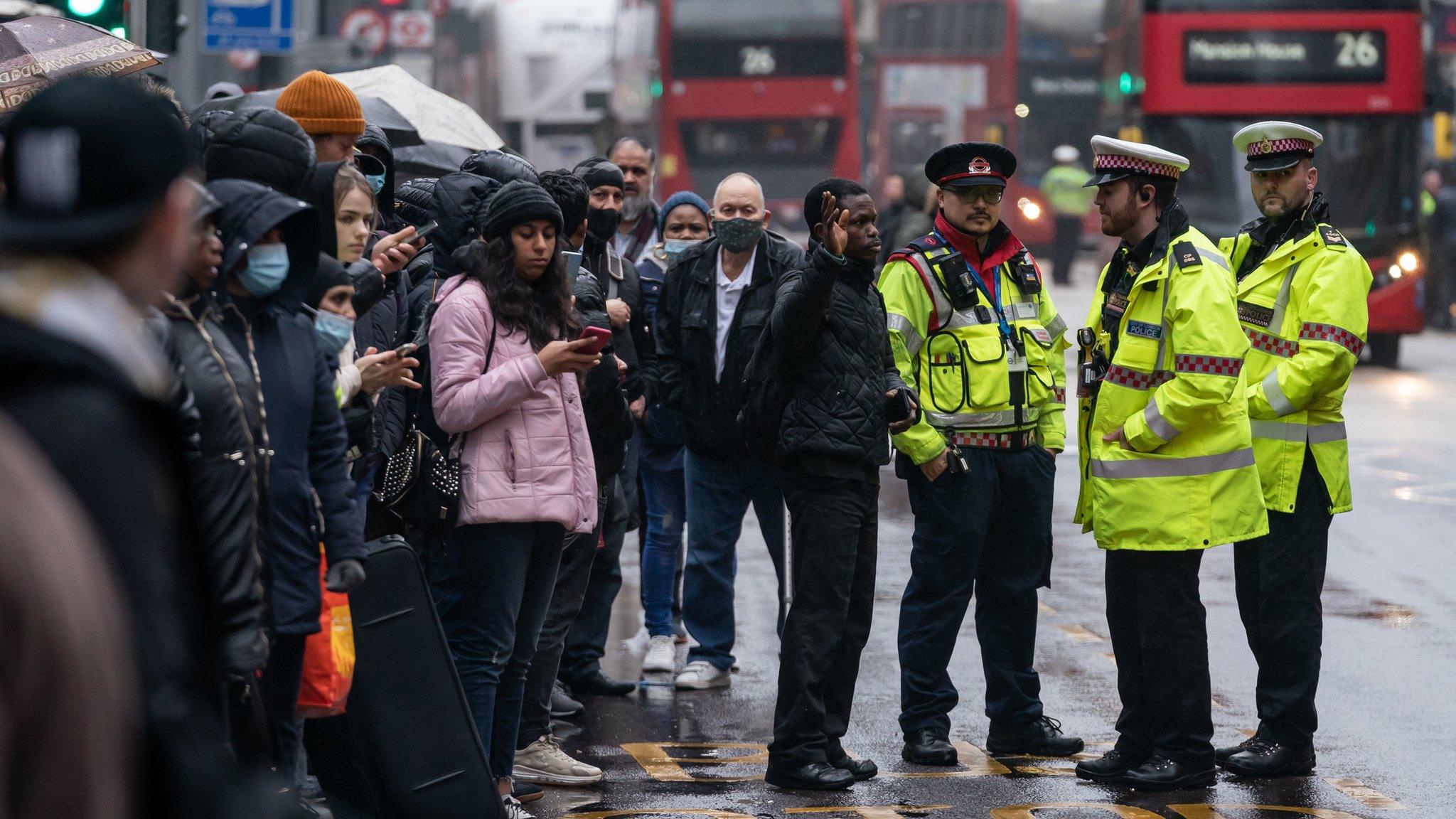London Tube strike: All lines down after workers walk out
- Published
- comments
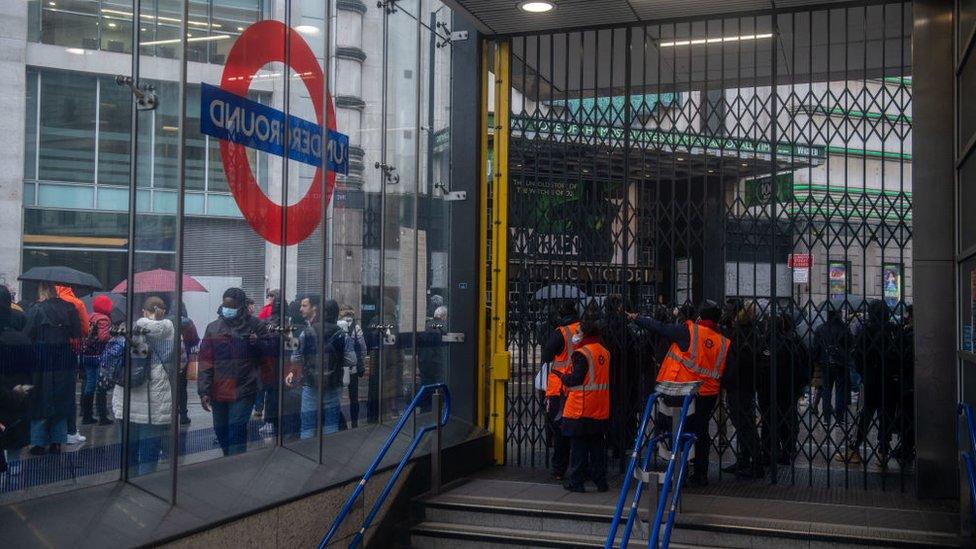
About 10,000 workers from the Rail, Maritime and Transport union walked out
All London Underground lines remain suspended after thousands of workers took strike action.
About 10,000 workers from the Rail, Maritime and Transport (RMT) union walked out at midnight in a dispute over job losses and pensions.
Transport bosses are warning of disruption on Wednesday with no services before 07:30 GMT ahead of another 24-hour walkout on Thursday.
A limited number of shuttle trains operated with no service on five lines.
Although extra services were laid on, buses were overwhelmed with passengers and taxi services struggling to keep up with demand.
Buses driving past stops was commonly reported due to overcrowding.
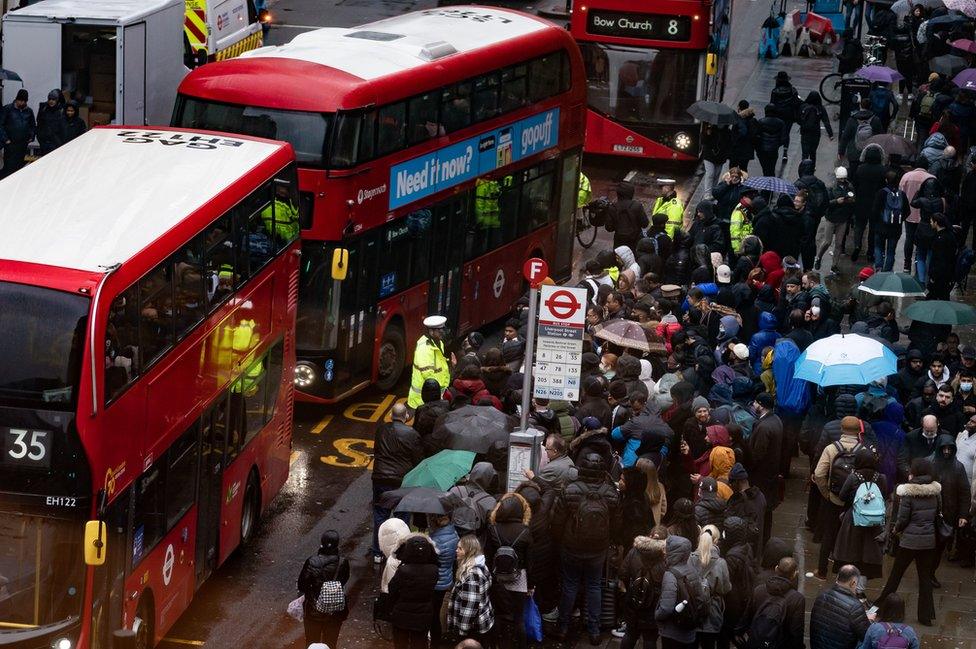
Buses frequently drove past stops due to overcrowding
TfL Rail, the Docklands Light Railway and tram services were mostly operating normally although London Overground was running a reduced service.
There was no service all day on the Victoria, Metropolitan, Jubilee, Circle and Hammersmith and City lines.
Tuesday also saw a fare increase.
Pat London, a self-employed portable appliance tester, said the strike meant he had to cancel a job.
"It's just another body blow that the beleaguered Joe Bloggs has to take on a daily basis," Mr London said.
"You can see the carnage out there. I support the cause but it's always the little man who suffers."
Louise Claire, a teacher working in Lambeth, said she hadn't been "too badly" affected by the strike.
"I got into London earlier so that I could get the bus from Vauxhall to Brixton," she said.
"I'll leave work earlier today too."
Allow X content?
This article contains content provided by X. We ask for your permission before anything is loaded, as they may be using cookies and other technologies. You may want to read X’s cookie policy, external and privacy policy, external before accepting. To view this content choose ‘accept and continue’.
Alexis George, who is a wheelchair user, said the strike had caused a "really inconvenient" queue for taxis.
"There are normally no people in the queue, lots of taxis and I usually get to work within 20 minutes," she said.
"Today I'm going to be late. This is the only mode of transport to get to work and I don't usually use the Tube because there is no step-free access at Charing Cross."
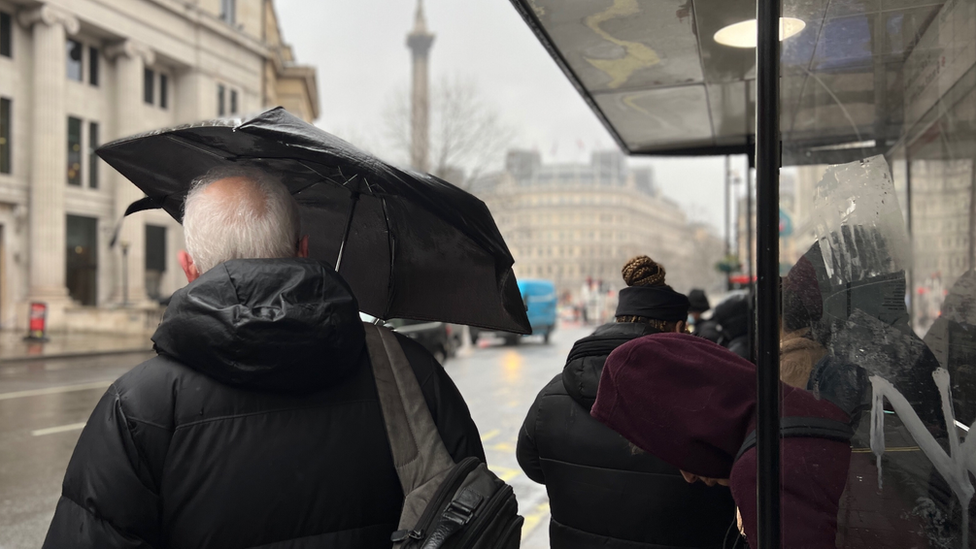
Large queues for buses have been reported across London
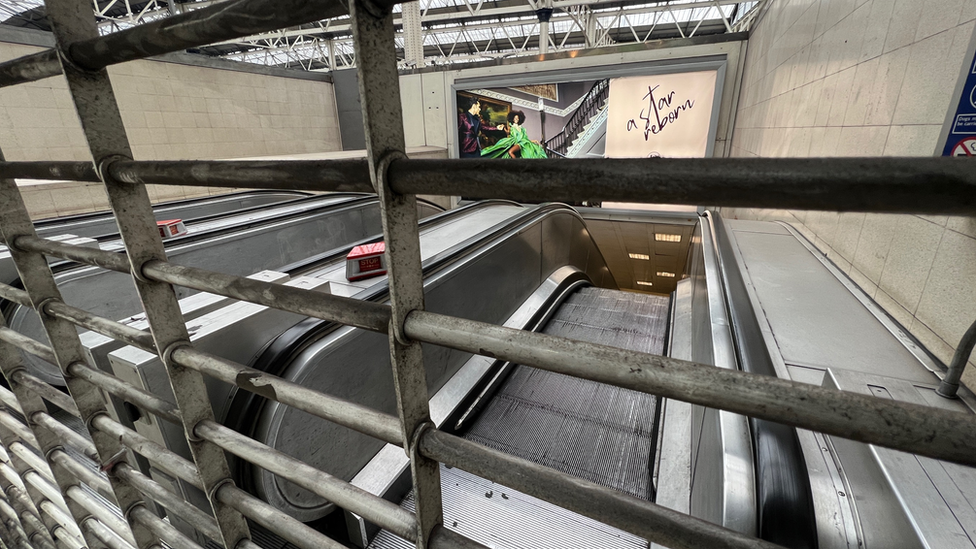
The entrance to Waterloo Underground station has been closed due to the strike
Transport for London (Tfl) chief operating officer Andy Lord said: "I apologise to customers for this and understand they will be frustrated by this strike action, but urge them not to take it out on those who are trying to help.
"We haven't proposed any changes to pensions or terms and conditions, and nobody has or will lose their jobs because of the proposals we have set out, so this action is completely unnecessary."
The RMT union has declared a second strike will take place on Thursday unless a deal can be reached.
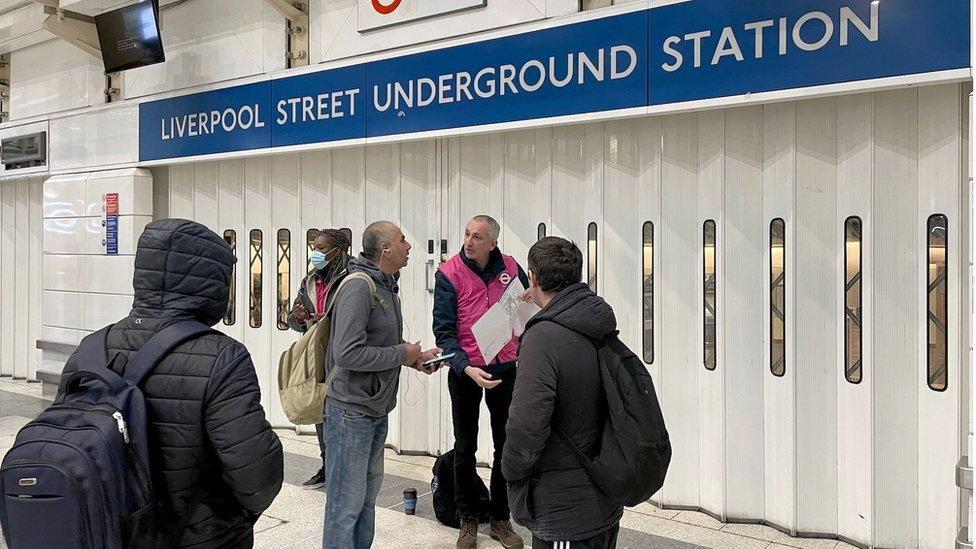
The RMT say proposed changes to members' pensions and conditions are "unfair"
Businesses reliant on commuter footfall have also been affected.
James Keeper, a barista at Blues And Royals coffee company on Embankment, said the streets were "empty".
"We rely on the station being open," he said.
"What's affected us as well, is not only the station being closed, but they've shut the gates preventing people from walking through, which pushes people away from us," he said.

Analysis
By BBC London transport correspondent Tom Edwards
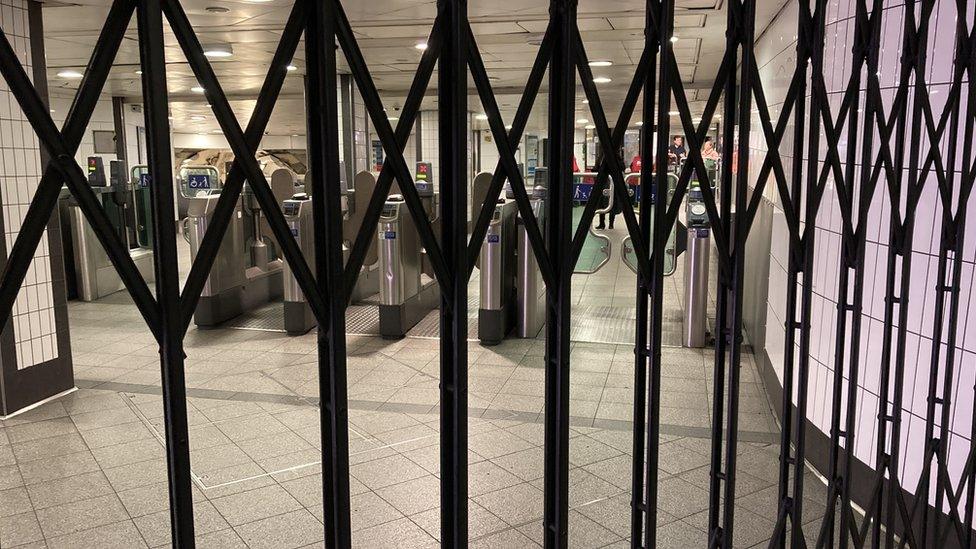
This is the big one and the big issue in these strikes is the potential threat over pensions, which the unions regard as sacrosanct and untouchable.
There's also anger that 600 posts are being closed. As part of the financial support agreed between TfL and the Department for Transport (DfT), the mayor agreed to look at TfL's pension scheme.
In 2021, TfL paid £375m into the pension. Some in government regard it as being too costly and too generous.
An independent review is currently being carried out but there are no proposals at the moment on what to do with it.
However, even proposed changes to the pension scheme cause fury from the transport unions.
The RMT regards the pension as a key part of the benefits of working at TfL and the unions says any change will be met with strike action.
The most recent financial deal from government talks about the mayor moving the pension scheme to a more "sustainable financial position" so it is very difficult to see how this can be resolved.
And more industrial action seems very likely.

RMT general secretary Mick Lynch said: "Sadiq Khan knows that this raid on our members' pensions and conditions is unfair and would lead to industrial action because he's said it himself.
"Yet only last week we find out that the mayor has agreed to submit proposals to the government that will result in attacks on those pensions.
"The mayor can solve this dispute by agreeing to talks that meet the concerns of his own workforce.
"For the good of his workers and London's recovery, Sadiq needs to stand firm against the government, stop the pensions raid and end the job massacre."
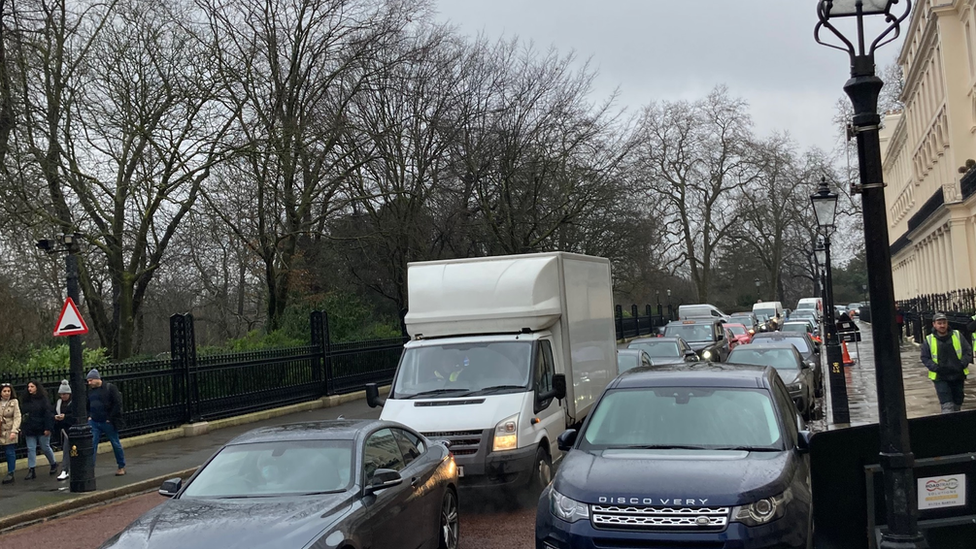
The tube strike has led to an increase in traffic on London's roads
Mayor of London Sadiq Khan said the ongoing pension review forms part of the conditions attached to the recent government bailout deal.
Mr Khan told BBC Radio London: "Had we have not done a deal with the government, [Transport for London] would have gone bankrupt, which would have meant job losses."
"Of course I understand concerns with our workers.
Allow X content?
This article contains content provided by X. We ask for your permission before anything is loaded, as they may be using cookies and other technologies. You may want to read X’s cookie policy, external and privacy policy, external before accepting. To view this content choose ‘accept and continue’.
"The strike has an impact on TfL's fares and businesses in London as well as those who have to go to hospital appointments, or those who have to go to school or college.
"My message to the RMT is to get round the table, resolve the differences and of course we recognise the work transport workers are doing."
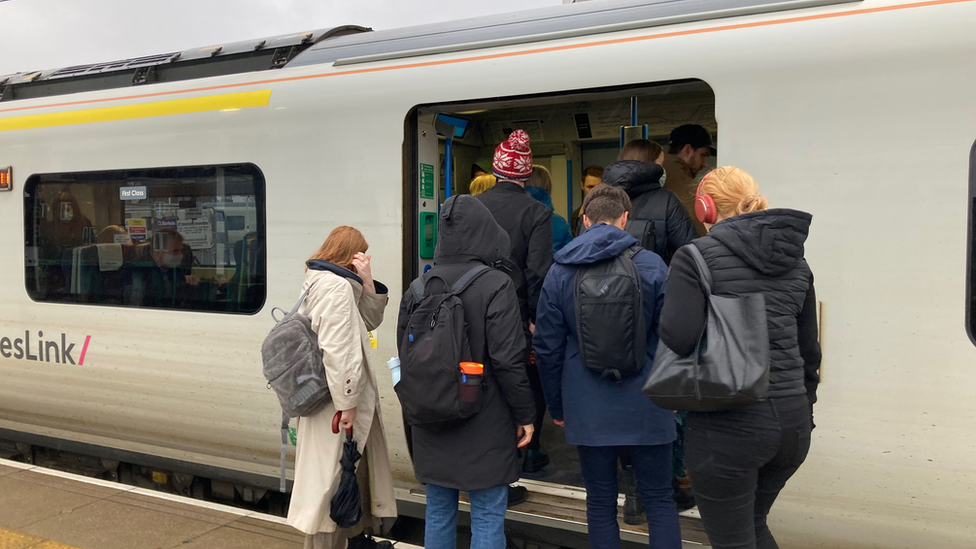
Train services into London are seeing an increase in customers as commuters try to find alternative routes to work
Commuters forced onto the street have also been contending with poor weather across London.
Prices on ride-hailing apps have shot up as drivers try to meet demand, with some customers complaining as much as £30 had been added to their journeys.
Some train services into London have been affected this morning despite not being directly linked to the RMT's walkout.
Great Northern, Chiltern Railways and all cross-London services are affected, National Rail said.
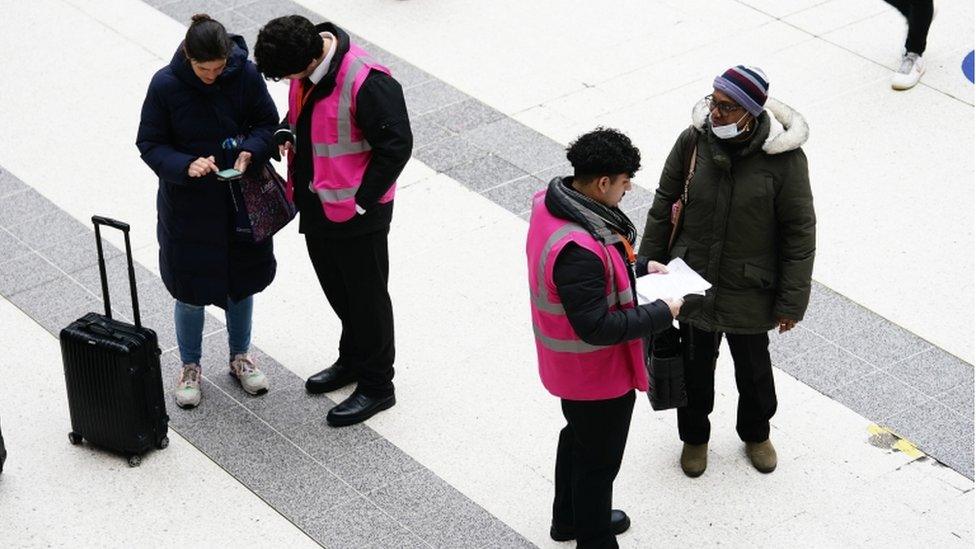
Rail fares in England and Wales have risen by up to 3.8% today
The strikes have closed five London stations on Great Northern's Northern City Line, from Drayton Park to Moorgate, because some are operated by London Underground staff.
Rail fares have also risen this morning to their highest level in nine years.
Across the country, not just in London, regulated fares in England and Wales will rise by up to 3.8%.
They cover around half of fares and include season tickets on most commuter routes.

Follow BBC London on Facebook, external, Twitter , externaland Instagram, external. Send your story ideas to hellobbclondon@bbc.co.uk, external
- Published1 March 2022
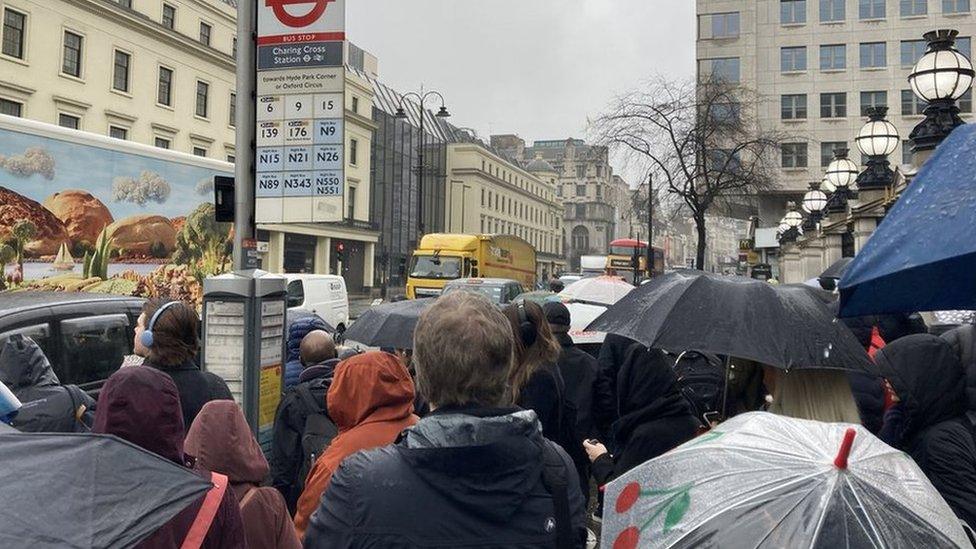
- Published28 February 2022
- Published28 February 2022
